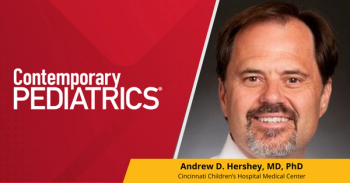
FDA approves atezolizumab for alveolar soft part sarcoma in pediatric patients
The FDA has approved atezolizumab for use in patients aged 2 years and older with unresectable or metastatic alveolar soft part sarcoma.
Atezolizumab (Tecentriq, Genentech, Inc.) has been approved by the US Food and Drug Administration (FDA) for treatment of unresectable or metastatic alveolar soft part sarcoma (ASPS) in patients aged 2 years and older.1
Atezolizumab was studied in 49 patients of adult and pediatric ages in an open-label, single-arm study, Study ML39345 (NCT03141684). Participants presented with unresectable or metastatic ASPS, and had ASPS confirmed cytologically or histologically.
ASPS was incurable by surgery in participants, and their Eastern Cooperative Oncology Group status was 2 or less. Exclusion criteria included symptomatic primary central nervous system (CNS), CNS malignancy, history of idiopathic pulmonary fibrosis, clinically significant liver disease, pneumonitis, organizing pneumonia, and active pneumonitis on imaging.
In pediatric patients, the efficacy of atezolizumab 15 mg/kg given once every 21 days was tested. Testing continued until unacceptable toxicity or disease progression. Overall response rate and duration of response were the primary outcomes of the study. Of the 49 patients in the study, 2 were pediatric patients aged 12 years or more
Adverse outcomes in the overall population included musculoskeletal pain, fatigue, rash, cough, headache, nausea, hypertension, vomiting, dyspnea, constipation, dizziness, hemorrhage, insomnia, diarrhea, pyrexia, anxiety, abdominal pain, hypothyroidism, decreased appetite, arrhythmia, decrease in weight, influenza symptoms, weight increase, and allergic rhinitis.
ASPS is a soft tissue cancer that most often starts in the leg, but can also appear in the neck, head, or arms.2 It presents as a painless lump upon onset, and often spreads to places such as the lungs before being detected. As the cancer cells travel through created blood vessels, ASPS can rapidly spread.
In the United States, about 80 cases of ASPS are diagnosed per year. Children are often diagnosed through lumps in the head and neck, with the tongue and eye socket being the most common locations. Imaging scans are used to detect the tumor and determine if it has spread, while a biopsy is used to determine if the tumor is ASPS.
Treatments for ASPS includes surgery, radiation therapy, and targeted therapy. With the recent FDA approval, atezolizumab will now be a method of treatment for adult and pediatric patients with ASPS.
Reference
- FDA grants approval to atezolizumab for alveolar soft part sarcoma. US Food and Drug Administration. December 9, 2022. Accessed December 13, 2022.
https://www.fda.gov/drugs/resources-information-approved-drugs/fda-grants-approval-atezolizumab-alveolar-soft-part-sarcoma#:~:text=On%20December%209%2C%202022%2C%20the,soft%20part%20sarcoma%20(ASPS - Alveolar soft part sarcoma (ASPS). National Cancer Institute. Accessed December 13, 2022. https://www.cancer.gov/pediatric-adult-rare-tumor/rare-tumors/rare-soft-tissue-tumors/alveolar-soft-part-sarcomas#:~:text=Alveolar%20soft%20part%20sarcoma%2C%20or,soft%20parts%2C%20or%20ASP%20sarcoma
Newsletter
Access practical, evidence-based guidance to support better care for our youngest patients. Join our email list for the latest clinical updates.








